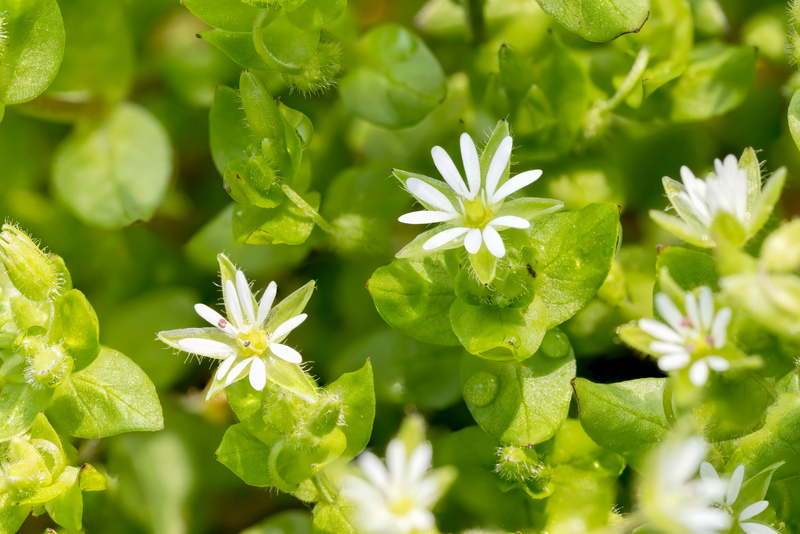Grow Veggies on Your Balcony
Posted on 26/04/2025
In today's urban settings, having access to fresh vegetables can be a bit of a luxury. However, your balcony can be transformed into a lush oasis of fruits and vegetables. Not only does it allow you to enjoy fresh produce, but it also adds greenery to your home environment. In this article, we will delve into the how-tos, tips, pros and cons, and everything you need to know about growing veggies on your balcony.
Why Grow Veggies on Your Balcony?
Growing vegetables on your balcony offers numerous advantages:
- Freshness: Nothing beats the taste of freshly harvested vegetables.
- Cost-Effective: Over time, growing your own veggies can be cheaper than buying from stores.
- Convenience: Having a garden at home means you have easy access to ingredients for your meals.
- Sustainability: Urban farming reduces the carbon footprint associated with transporting food.

Choose the Right Vegetables
Not all vegetables are suited for balcony gardening. Here are some excellent choices:
- Tomatoes: Compact varieties like cherry tomatoes are perfect.
- Herbs: Basil, mint, chives, and parsley thrive in pots.
- Lettuces: Leafy greens can be continuously harvested.
- Peppers: Both hot and sweet peppers adapt well to container gardening.
- Radishes: These grow quickly and don't require much space.
Select the Right Containers and Soil
Your choice of containers and soil can make a significant difference:
- Container Size: Ensure that containers are large enough for root growth. At least 12 inches in diameter for most plants.
- Drainage: Containers should have drainage holes to prevent waterlogging.
- Soil Mix: Use high-quality potting mix enriched with organic compost. Regular garden soil is too heavy for containers.
Light and Water Requirements
Light and water are crucial elements for a successful balcony garden:
- Sunlight: Most veggies need at least 6 hours of direct sunlight. Position your containers accordingly.
- Watering: Maintain consistent moisture levels in your soil. Don't let it dry out, but avoid waterlogging.
- Mulching: Use mulch to retain moisture and reduce the frequency of watering.
Best Practices for Pest Control
Pests can be a significant issue in a balcony garden. Here are some tips:
- Natural Predators: Introduce beneficial insects like ladybugs.
- Companion Planting: Plant pest-repellent plants like marigold and garlic alongside your vegetables.
- Neem Oil: This works as an organic insecticide.
- Regular Inspections: Check your plants regularly for signs of pest infestations.
The Pros and Cons of Growing Veggies on Your Balcony
Like any endeavor, balcony gardening has its ups and downs. Here's a balanced view:
Pros
- Health Benefits: Home-grown veggies are healthier and free from harmful chemicals.
- Aesthetics: A well-maintained garden adds beauty to your living space.
- Therapeutic: Gardening can be a relaxing and enjoyable activity.
Cons
- Space Limitations: Balconies have limited space, which restricts the variety and quantity of plants you can grow.
- Environmental Factors: Balconies exposed to harsh winds or limited sunlight can affect plant growth.
- Initial Investment: Costs for containers, soil, and seeds can add up initially.
Useful Tips for a Thriving Balcony Garden
- Start Small: Begin with a few plants and gradually expand as you gain experience.
- Know Your Microclimate: Each balcony has its unique conditions. Observe how sunlight and wind behave before placing your plants.
- Rotate Crops: Prevent soil depletion and pest problems by rotating your plants every season.
- Pruning: Regularly prune your plants to encourage growth and remove dead parts.
- Vertical Gardening: Use vertical space to grow climbing plants and maximize your area.

Key Takeaways
- Growing veggies on your balcony is a rewarding and sustainable practice.
- Choose the right plants, containers, and soil for optimal growth.
- Ensure your plants get enough sunlight and consistent watering.
- Be proactive with pest control and employ natural methods.
- Understand the pros and cons to set realistic expectations.
Conclusion
Embarking on the journey to grow veggies on your balcony is both exciting and fulfilling. It transforms your living space into a green sanctuary, provides you with fresh produce, and contributes to a sustainable lifestyle. Whether you have a green thumb or are just starting, balcony gardening is a rewarding endeavour that brings joy, health, and beauty into your home. Follow the tips and best practices laid out in this guide, and you'll soon enjoy a thriving balcony garden.
Latest Posts
Easy Ways to Freshen Up Your Patio and Paving for Summer
Unique Autumn Garden Inspiration: Planting with the Season in Mind
Quick and Effective Ways to Sharpen Your Garden Shears at Home
Easy Ways to Keep Your Artificial Turf Looking Brand New
Elevate Tranquility With These Zen Garden Planting Inspirations






 Certified and experienced landscapers
Certified and experienced landscapers



 Get a Quote
Get a Quote